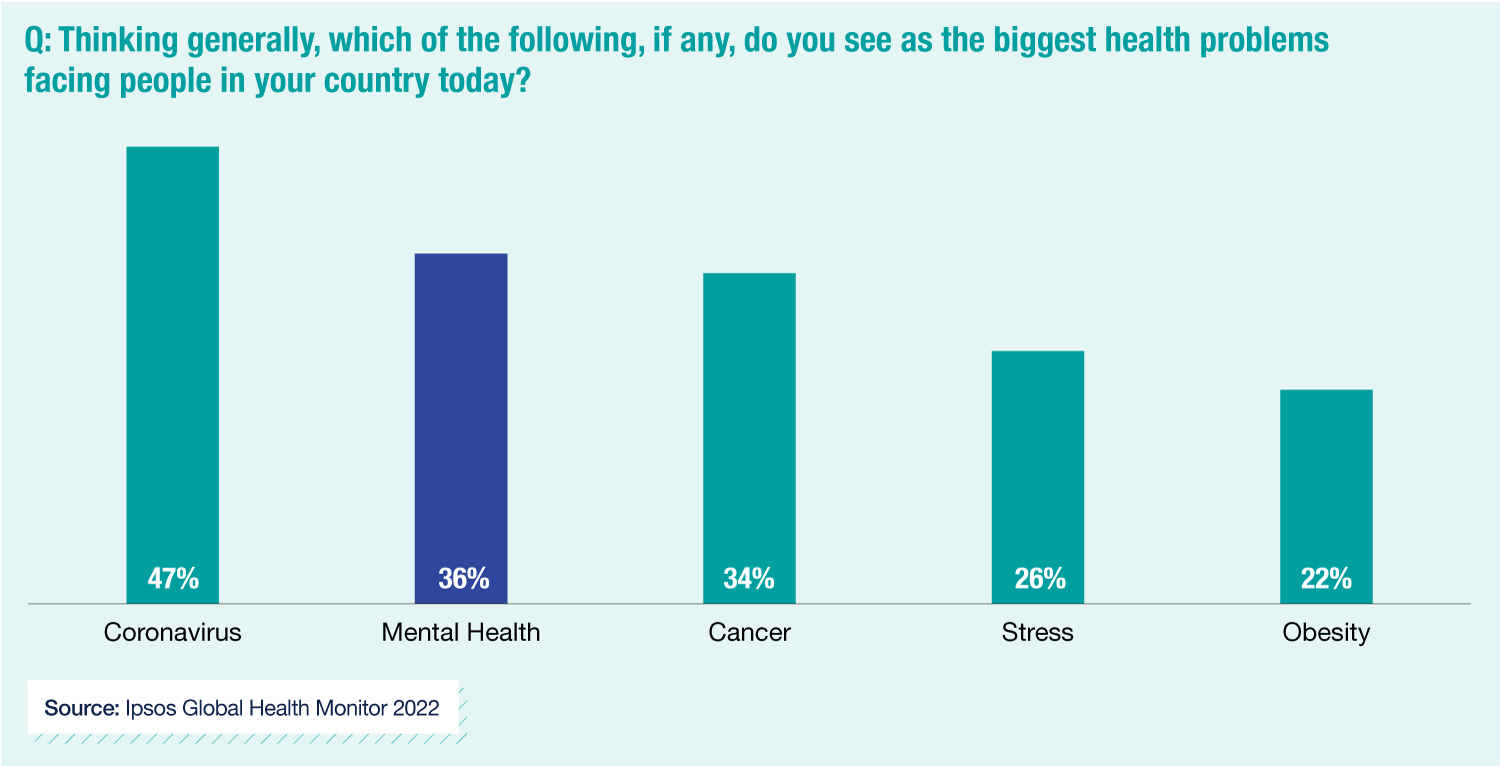New Ipsos data shows us the size of the challenge we’re facing when it comes to employee wellbeing. So where should organisations be focusing their efforts?
Recent research by Ipsos revealed that the public perceive mental health to be the second biggest challenge people are facing with their health post-pandemic. In the same study, nearly 2 in 5 said in the last year they had felt stressed to the point they could not go to work for a period of time.

Base: 23,507 online adults in 34 countries, 22 July – 5 August 2022. - The results are the “Global Country Average” i.e. the average result for all the countries where the survey was conducted.
Given the size of the challenge, many organisations we speak to are left wondering where to start.
Ruth Prowse, Consultant at Ipsos Karian and Box, provides three focus areas for organisations when it comes to mental health and wellbeing, as well as guidance for HR and IC change-makers:
Communicating wellbeing support available
One of the biggest challenges can be communicating what support an organisation is already providing. Britain’s Healthiest Workplace Survey 2022 uncovered that up to half of employees are not aware of the supportive programmes available at their organisations.
One thing to consider is how you can raise awareness of existing Employee Assistance Programmes (EAPs). This is best executed while promoting an environment of open communication through the use of existing channels. It’s also worth thinking about how you can share other useful resources such as blogs, FAQs and links to external resources.
Think about how you can embed wellbeing communications across the employee life cycle, for example: making mental health and wellbeing part of the onboarding process and providing ongoing training for all employees.
Understanding the impact of the cost-of-living crisis on employees
With the continued rise in fuel, food and energy prices, financial worries are contributing to employee stress and anxiety. The CEBR (the Centre for Economic and Business Research) report 10% of employees have missed days at work due to financial problems and that over a third of employees are distracted at work by debt concerns.
In order to support employees with their financial wellbeing, organisations should review fair pay and benefits policies especially for the lowest earners within an organisation. As advised by the CIPD, you can also consider providing employee financial support such as access to independent financial advisors. Keep listening to what type of support employees might need and be prepared to flex to their requirements as needs change.
Avoiding employee burnout due to work/life imbalance
Due to the 'always on culture' and the blurring of work and home life, many are finding it difficult to achieve a healthy work-life balance and are experiencing burnout.
With 46% of Gen Zs and 45% of Millennials feeling burned out due to their working environments, now could be the opportunity to review employee job demands — ensuring jobs are achievable within working hours and designed within the capabilities of the employee. Another consideration is to make rest a priority ensuring that employees take their annual leave (PTO) and take the time to replenish.
Ipsos Karian and Box







